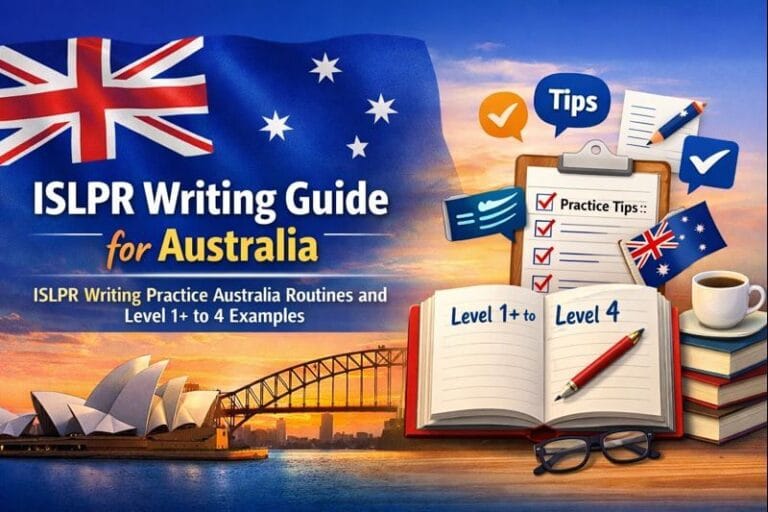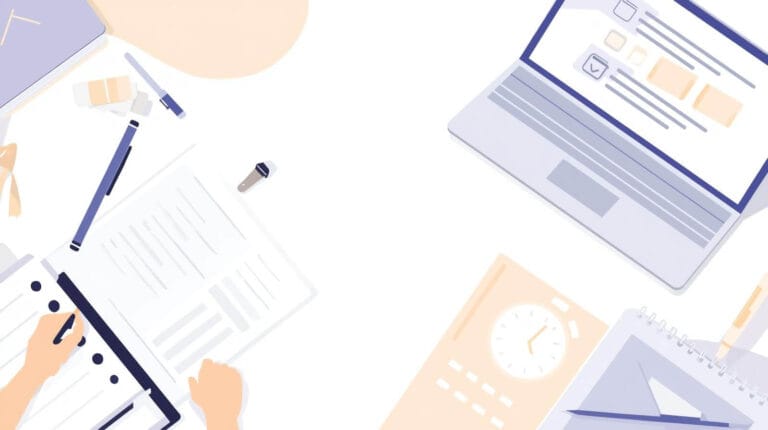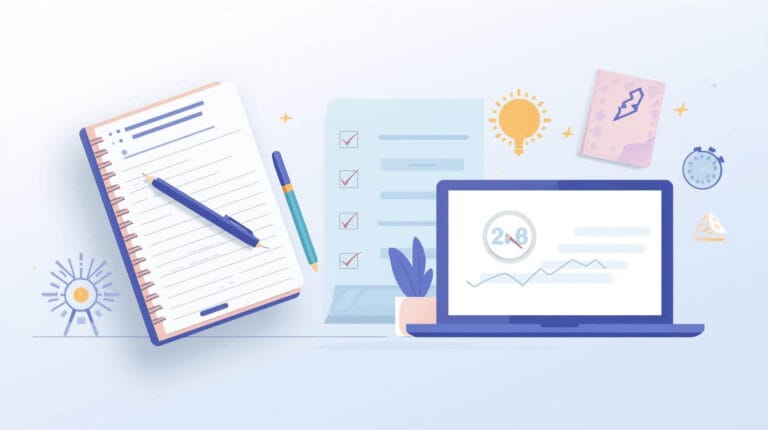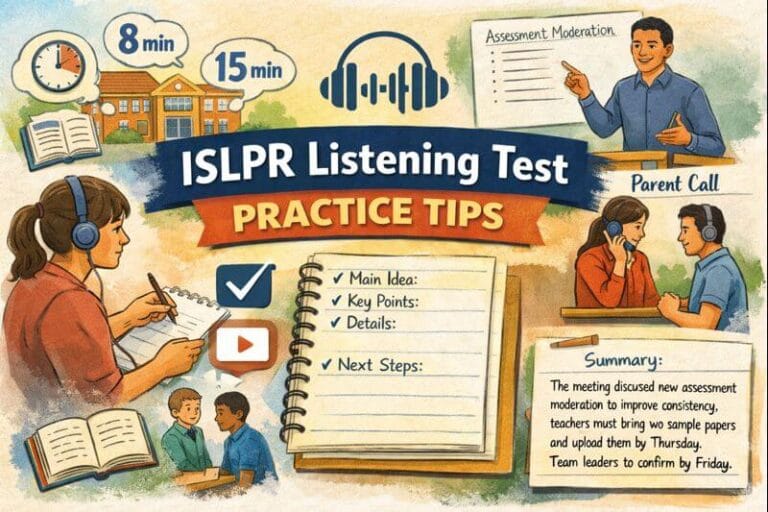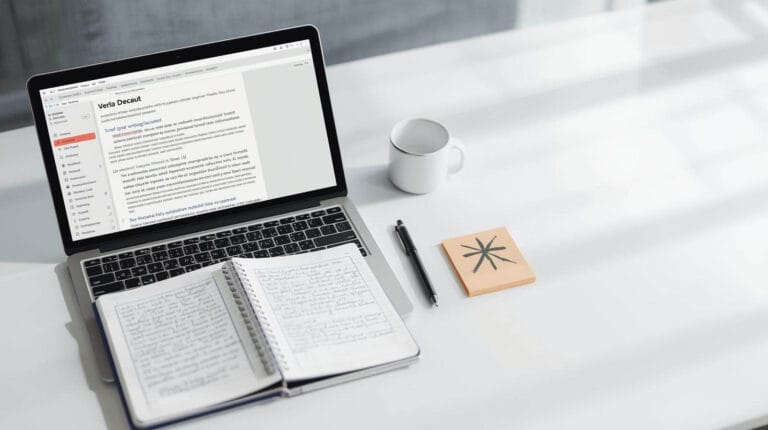ISLPR small talk before the test is a subtle yet powerful skill that’s often overlooked. While most candidates focus on the core components including peaking, listening, reading, and writing, this brief, casual conversation can shape your entire test experience and set the tone for success.
Those few minutes of casual conversation with the receptionist or examiner before the test begins may seem minor, but they offer a golden opportunity to demonstrate your comfort with English in real-life situations. This guide will show you how to talk to the examiner before the ISLPR test, what to say at the test centre, and how to sound confident and natural.

Why Small Talk Before the ISLPR Test Matters
Small talk is more than polite chatter; it’s a social skill that builds rapport, eases nerves, and shows your ability to engage in everyday English. In the ISLPR speaking test, where real-world communication is key, even informal exchanges can reflect your fluency, pronunciation, and cultural awareness.
While the test officially begins during the structured speaking section, your interaction with staff beforehand can help you warm up and mentally prepare. Think of it as a warm-up lap before the race.
ISLPR Test Day Conversation Examples
Here are common moments where ISLPR small talk before the test might happen:
- At the reception desk: You check in and confirm your appointment.
- While waiting: You might exchange a few words with the receptionist or another candidate.
- Meeting the examiner: You’re greeted and escorted to the testing room.
Each of these moments is a chance to show your ease with conversational English.
How to Prepare for ISLPR Small Talk
You don’t need to memorize scripts, but it helps to prepare a few phrases and topics. Here’s how to get ready for ISLPR test day conversation:
1. Practice Polite Greetings
Start with the basics. A warm, polite greeting sets a positive tone.
- “Good morning! I’m here for my ISLPR test.”
- “Hi, I have an appointment at 10 a.m.”
Smile and make eye contact—it shows confidence and friendliness.
2. Use Friendly Follow-Ups
After the greeting, add a simple question or comment:
- “How’s your day going so far?”
- “It’s a bit chilly today, isn’t it?”
These are safe, neutral ways to keep the conversation going.
3. Talk About the Weather or Your Day
Weather is a classic small talk topic—it’s universal and easy.
- “It’s been raining all week. I hope it clears up soon.”
- “Lovely weather today—perfect for a walk after the test.”
You can also mention your journey:
- “I took the bus in from the city. It was a smooth ride.”
- “I’ve been looking forward to this test—I’m a bit nervous, though.”
4. Ask Simple Questions
If the receptionist or examiner seems open to chatting, try:
- “Is it usually busy here on Saturdays?”
- “Do you get many test-takers from overseas?”
Keep it casual and respectful. If they seem busy, it’s okay to stop.
Phrases to Use Before the ISLPR Test
Here are some ready-to-use ISLPR test day conversation examples:
At Reception:
- “Hi, I’m Ronald. I have an ISLPR test booked for 10 a.m.”
- “Do I need to show any ID?”
- “Thanks for your help!”
While Waiting:
- “Is this your first time taking the test?”
- “I’ve been brushing up on my speaking skills—how about you?”
Meeting the Examiner:
- “Good morning! Nice to meet you.”
- “I’m a bit nervous, but I’m ready to give it my best.”
- “Thanks for having me today.”
Tips for Sounding Natural in ISLPR Small Talk
Even if English isn’t your first language, you can still sound relaxed and confident. Here’s how:
1. Speak at a Comfortable Pace
Nerves can make you rush. Slow down, breathe, and speak clearly.
2. Use Natural Intonation
Practice rising and falling tones. This makes your speech sound more fluent and expressive.
3. Listen Actively
Small talk is a two-way street. Nod, smile, and respond to what the other person says.
- “Oh, you’ve been working here long? That must be interesting.”
4. Don’t Worry About Mistakes
Everyone makes small errors—even native speakers. If you stumble, just smile and keep going.
What to Avoid in ISLPR Test Centre Conversations
While small talk is casual, avoid:
- Overly personal questions: Don’t ask about age, salary, or family.
- Negative comments: Avoid complaining about the test or the staff.
- Trying too hard: Don’t force jokes or use unfamiliar slang.
Keep it light, polite, and positive.
Practice Makes Perfect: How to Improve ISLPR Small Talk
The best way to improve your ISLPR small talk before test is to practice:
- Role-play with a friend or tutor: Take turns being the receptionist.
- Record yourself: Listen to your tone and pacing.
- Talk to strangers: Say hello to a barista or ask a shop assistant how their day is going.
These real-life moments build confidence and fluency.
Final Thoughts: Shine Before the Test Begins
Small talk may seem like a small detail, but it can make a big difference in how you feel and perform on test day. It helps you settle in, connect with others, and show your ability to use English naturally.
With a little preparation and practice, you’ll be ready to greet the receptionist with a smile, chat with the examiner, and walk into your ISLPR test with confidence.
And remember—every conversation, no matter how short, is a chance to shine.


